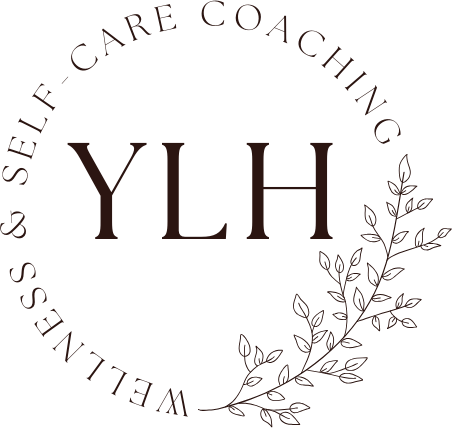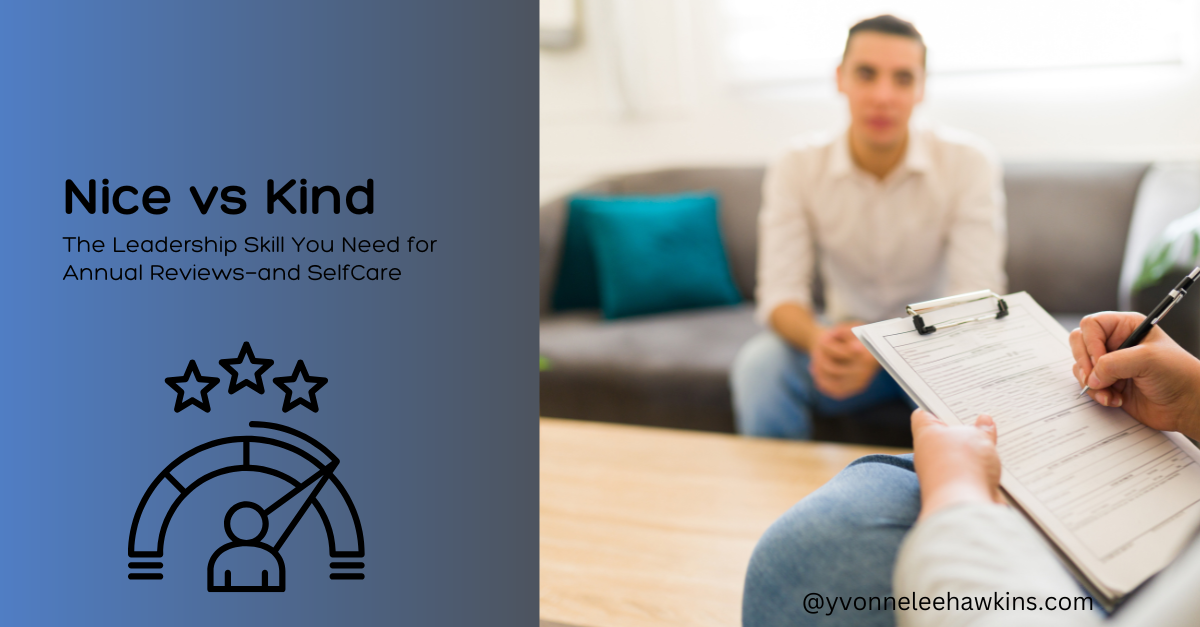It’s that time of year when managers are preparing annual
reviews. If you’re not a manager, you might have already prepared your self
review and you are bracing for your leader’s feedback. As a leader, one of your
most important responsibilities is delivering feedback. Whether it’s during
annual reviews, performance evaluations, or crucial conversations, your role is
to guide, support, and challenge your team to grow. But how you approach
these conversations makes all the difference.
Too often, leaders fall into the trap of being nice
instead of kind. Niceness prioritizes comfort—avoiding hard truths to
keep the peace. Kindness, on the other hand, prioritizes growth—it requires
honesty, even when it’s uncomfortable.
This distinction isn’t just essential in leadership; it’s
critical in how you lead yourself, too. True self-care isn’t about
avoiding discomfort. It’s about facing what needs to be addressed so you can
grow, improve, and ultimately thrive.
Leadership, Kindness, and the Annual Review
Think about the last time you had to give someone tough
feedback. Maybe you softened the truth to avoid hurting their feelings. Maybe
you avoided the issue altogether, hoping they’d figure it out on their own.
That’s niceness—and while it feels good in the moment, it doesn’t serve
anyone in the long run.
A truly kind leader delivers the hard truths with empathy
and clarity. They don’t sugarcoat or avoid, but they also don’t criticize
without care. They recognize that feedback, when delivered with kindness, is a
gift—it gives their team members the opportunity to grow.
The same principle applies to yourself. When was the
last time you gave yourself an honest annual review?
- Are
you setting boundaries that protect your well-being? (or are you
overworking?)
- Are
you making choices that support your physical and mental health? (or
choices that help you cope in the moment?)
- Are
you leading yourself with clarity, or are you avoiding the hard
conversations you need to have?
A leader wouldn’t let their team stay stagnant, why should
you let yourself?
Self-Soothing vs. Self-Sabotage: Are You Leading Yourself Well?
One of the biggest pitfalls leaders face—both in managing
teams and in self-care—is mistaking self-soothing for self-care.
Self-soothing is necessary. After a tough day, it’s okay to occasionally
unwind with a favorite show, indulge in comfort food, or take a break. But when
self-soothing becomes the norm and is an excuse to avoid necessary action, it
turns into self-sabotage.
- Saying,
“I need rest” is self-care. Saying, “I’ll start eating healthy next monday”
(for the fifth month in a row) is self-sabotage.
- Taking
a break after a long day is self-care. Using exhaustion as a reason to
avoid hard conversations is self-sabotage.
- Allowing
yourself grace is self-care. Avoiding personal accountability is
self-sabotage.
As a leader, you wouldn’t let your team settle for
mediocrity. You would challenge them to step up, even when it’s uncomfortable.
Why not do the same for yourself?
The Kindest Thing You Can Do for Yourself—and Your Team
Being kind to yourself means holding yourself to a high
standard—not out of punishment, but because you deserve to live at your best.
It means taking inventory of your choices, just like an annual performance
review, and asking:
- Where
am I excelling? (what was once difficult that I am now really good at?)
- Where
do I need to improve? (what’s the thing that I still need to practice?)
- What
uncomfortable truths do I need to face to reach my goals?
Leaders know that real success comes from the long-term,
not just momentary comfort. The same goes for self-care.
So, as you approach this year’s annual reviews—both for your
team and yourself—remember:
Being nice keeps you comfortable.
Being kind helps you grow.
Choose kindness. Lead well. And don’t forget—you’re leading
yourself, too.
***
Did this topic add value to you? Please like
and subscribe if you want more topics like this, or DM me. I always love
suggestions and feedback!
And if you are too burned out and overwhelmed
to even begin to use any of these strategies it might be time to get some help.
Find a coach, therapist, or doctor who can help you reverse out of the
physical, mental, and emotional symptoms of burnout so you can get back to
living in life you love.
Remember, Self-care isn’t selfish…it’s
required!
Yvonne Lee-Hawkins, IPHM, is a holistic
Leadership and Wellness coach, stress strategist, and writer, who spent 20
years in corporate and leadership functions. When she is not working, she loves
to go on nature adventures with her family, in the Pacific Northwest where they
call home. You can find out more on her website, or
follow her on LinkedIn, Medium, or
Instagram.
If you want some help tapping into
self-leadership leading your team with kindness and clarity, or with general
wellness, schedule
a call here.

